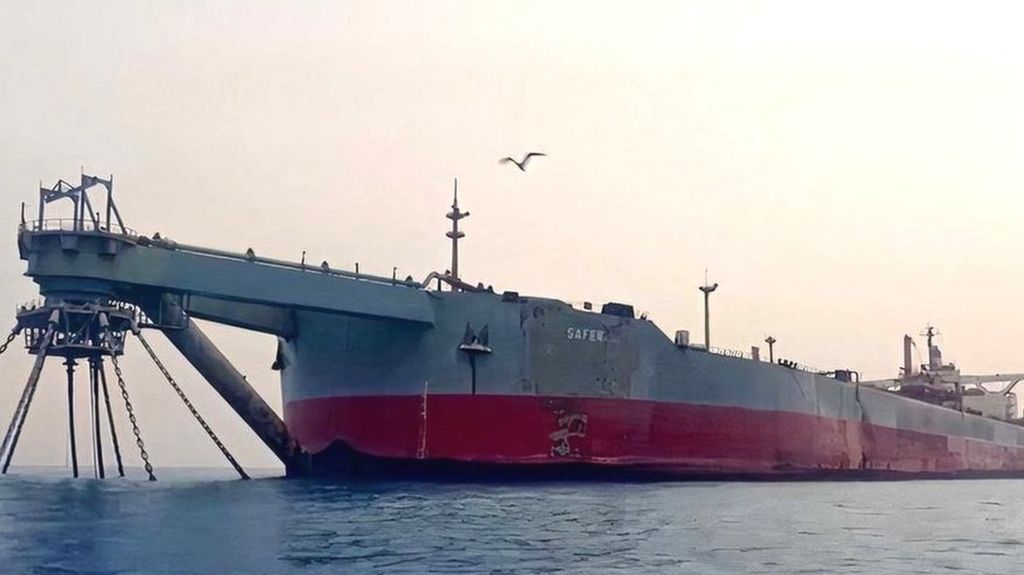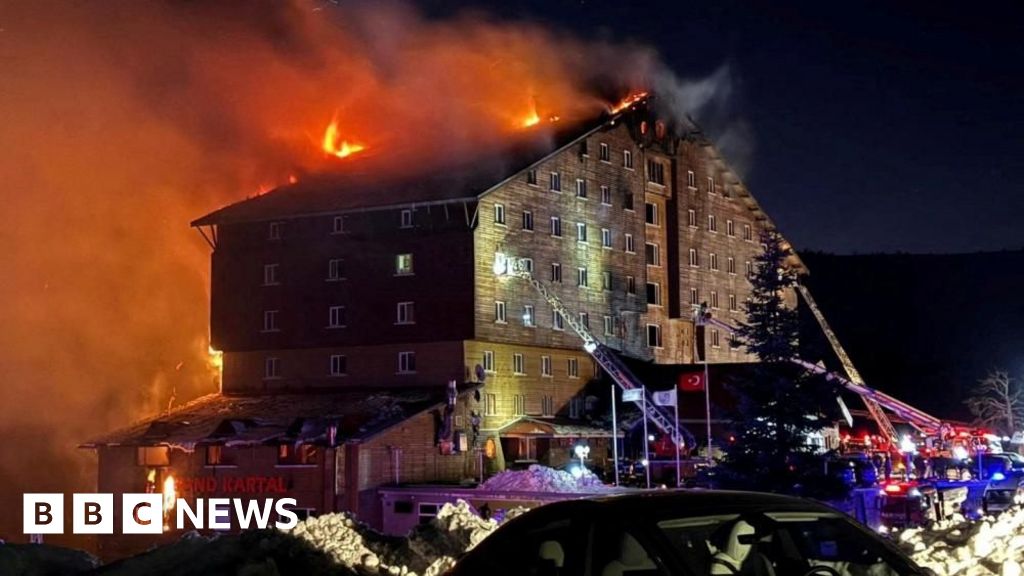ARTICLE AD BOX
By David Gritten
BBC News
 Image source, Holm Akhdar
Image source, Holm Akhdar
The FSP Safer is carrying 1.1m barrels of oil - four times the amount spilled in the 1989 Exxon Valdez disaster
The UN has launched a crowdfunding drive to raise $5m (£4.1m) in two weeks for an operation to remove a million barrels of crude oil from a decaying supertanker off Yemen's Red Sea coast.
The FCO Safer has had virtually no maintenance since the start of Yemen's devastating civil war seven years ago.
But work to prevent such a disaster has been delayed due to a funding shortage.
UN member states have only pledged about $60m of the $80m needed for the initial operation to transfer the oil to another vessel. An additional $64m is needed for a long-term replacement for the Safer.
"We're trying to get to this $80m figure by the end of this month. It's doable, but it's going to take a push and that's why we're calling on the public to help us to cross the finish line," David Gressly, the UN humanitarian co-ordinator for Yemen, told an online briefing.
He added: "$20m is really not much when you look at the overall cost that this catastrophe would have. If indeed there were a spill, the estimates that we've received on the clean-up alone would be $20 billion."
Warning: Third party content may contain adverts
The FCO Safer was constructed as a supertanker in 1976 and converted later into a floating storage and offloading facility for oil. It is anchored near the Ras Isa oil terminal, which is controlled by Yemen's rebel Houthi movement.
The 376m (1,233ft) vessel holds an estimated 1.14m barrels of crude oil, which is four times the amount of oil spilled in the 1989 Exxon Valdez disaster.
The Safer's structural integrity has deteriorated significantly since maintenance operations were suspended in 2015, when the Houthis seized large parts of Yemen and a Saudi-led coalition intervened in support of the Yemeni government. The ensuing conflict has reportedly killed more than 150,000 people and left more than 23 million others in need of aid.
Mr Gressly warned that the Safer's advanced state of decay meant a catastrophe was "not just a probability or possibility, but a certainty if we do not act".
AFP
Potential impacts of massive oil spill from the FCO Safer
Marine lifeReefs, mangroves and other sea life in the Red Sea would be destroyed
Air pollutionMillions of people would be exposed to highly polluted air
Aid suppliesNearby ports would close, halting food, fuel and medicine shipments
FishingStocks would take 25 years to recover and 200,000 Yemenis would lose jobs
Source: United Nations
He said the Houthis and the Yemeni government were "anxious" for the UN's plan to transfer the Safer's oil to begin, and that the only obstacle remaining was the funding shortage.
The operation would become more difficult if it is not completed by October or November, when winds and currents would pick up and the chance of the vessel breaking up would increase, he added.
You may also be interested in:
Yemen has seen some of the worst violence of its eight-year civil war in the past 12 months

 2 years ago
77
2 years ago
77








 English (US) ·
English (US) ·